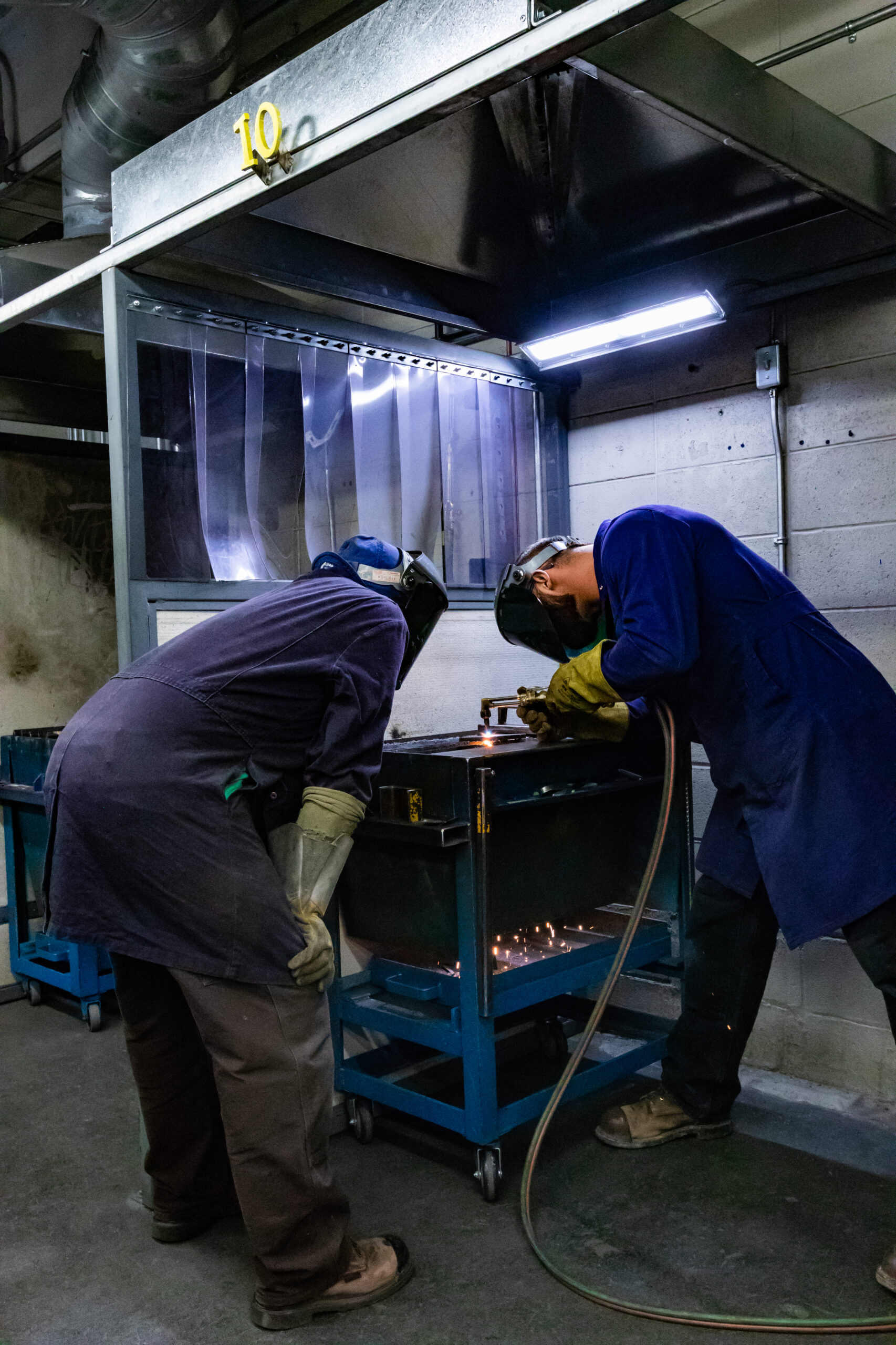By Zachary Flynn
In less than 10 years, there will be an estimated need for 14,000 welders in Canada, yet NAIT’s welding program has decreased their intake significantly over the past few years.
Spots in NAIT’s welding program have been reduced to less than a third of the 2130 seats available in the 2015/16 academic year. This is said to be due to the economic recession Alberta recently faced in 2015.
Currently, the average age of the Canadian welder is 56, and by 2025, many welders from the ‘baby-boomer’ generation are expected to retire.
“Now more than ever, we need to work with employers to try to encourage them to take on more apprentices,” said Dan Tadic, Executive Director of the Canadian Welding Bureau Association.
According to recent Apprenticeship Forum information, across all trades, only 19% of employers are taking on apprentices.
“We need to have seismic shift in our attitude and approach to apprenticeship training,” said Tadic. “We need to make a greater commitment to training and education.”
Antonio Santos Oliveira is a 67-year-old welder with over 50 years of experience. He has seen that employers in the industry are often looking for the most experienced welders.
“If you mess up a weld or two, you get laid off,” said Oliveira.
Oliveira believes that apprentices don’t always get enough experience out in the field because employers aren’t willing to take risks on inexperienced welders. He finds a lot of younger tradespeople are completing their welding certification before going on to work in other trades.
“Why go through all of this pressure when you could go as a pipefitter and make the same amount of money,” said Oliveira.
Staff from NAIT’s welding program see that many of their graduates are using their welding certification as a stepping-stone to becoming a foreman or inspector.
Darren Waldbauer, the Associate Chair of NAIT’s welding program finds that tradespeople are looking to welding as more of a necessary skill than a trade. He believes that a tradesperson with welding certification is able to do more on-site and be more versatile in the industry.
By 2025, 68-year-old Antonio Santos Oliveira, as well as many of the baby-boomer welders will most-likely be retired and the industry will need young welders to fill those positions.
But in the meantime, Antonio Santos Oliveira isn’t counting down the days to retirement and has advice for workers entering the field.
“It doesn’t matter what direction you go, just be good, do your best, and be happy with what you do,” said Olivera.“If you go and you do your job, you have a passion for it, it doesn’t matter — the companies, will keep you around.”





